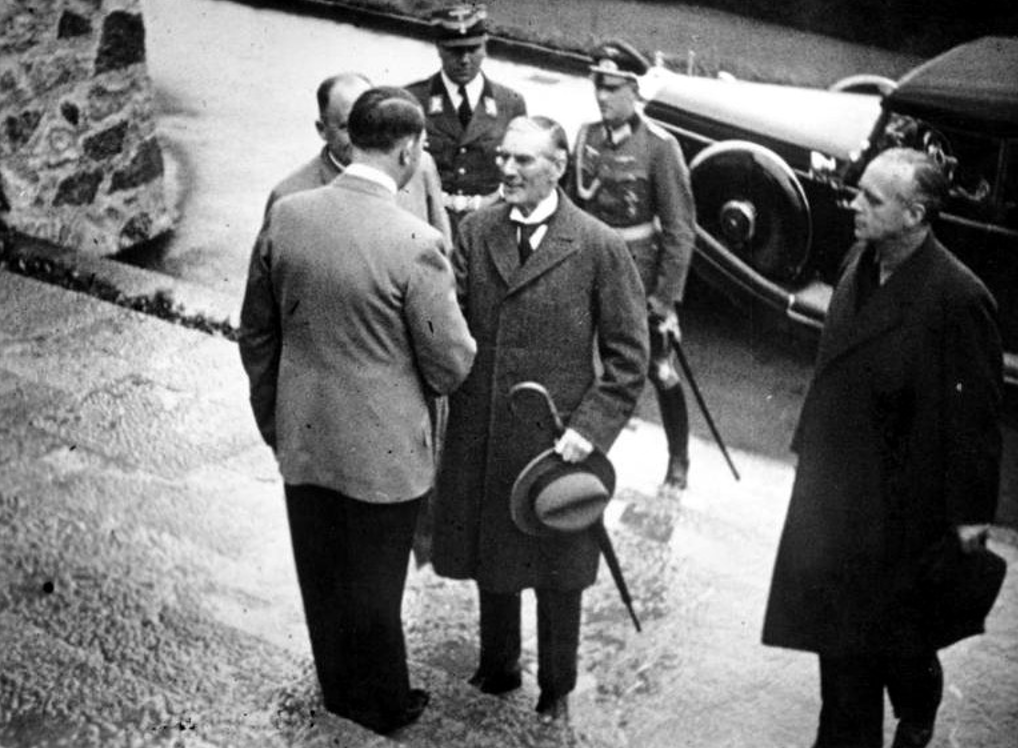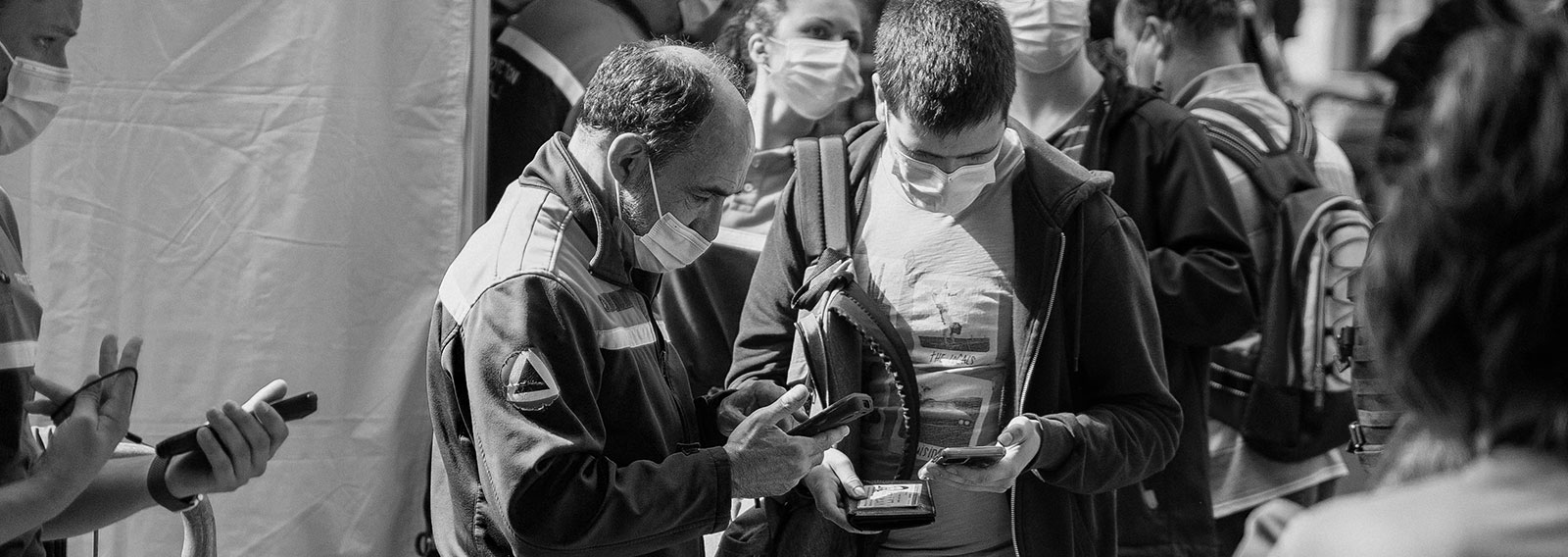The flawed Karl Barth never ceases to confound his students, or humble malicious attempts from his followers to steer him in a particular political direction.
One primary example of this is a letter written in December 1939, to ‘The French Protestants’ at the outbreak of World War Two.
He urged them to choose the better side of responsible action over irresponsible action, or worse, total inaction.
Barth called for the Church to awaken.
His clarion call advised a turn from the prevailing naïve politics of appeasement and its culture of compliance.
Barth was not a fan of England and France’s move to satiate the bureaucratic wolves threatening to tear Europe apart.
Specifically, Barth was critical of Pastors supporting Chamberlain’s capitulation to National Socialist demands which sold out another nation’s sovereignty and liberty, behind the veil of: “for the greater good.”
He said:
“It would be regrettable if the Christian Churches, which in previous wars have so often and so thoughtlessly spoken the language of nationalism and militarism, should just in this war equally thoughtlessly decide to adopt the silence of neutrality and pacifism.”
Barth continued:
“The Churches to-day should pray in all penitence and sobriety for a just peace…to bear witness to all the world that it is necessary and worthwhile to fight and suffer for this just peace”[i]
Barth in Loconte, J (Ed.)The End Of Illusions, 2004
According to Joseph Loconte, Barth lamented the ‘Munich Agreement’ writing in his diary: ‘Catastrophe of European liberty in Munich.’
In a letter to Czech soldiers, he added, ‘resistance to Hitler, was service to Christ’.
The Swiss, anti-Nazi theologian also noted the partial injustice of 1919. The Treaty of Versailles made England and France ‘chiefly responsible for the state of affairs which arose in Europe after 1919 – which in turn, as far as Barth sees it, makes them responsible, too, for making Hitler possible.’
Although Barth prefers the term ‘just peace’, steering away from applying the phrase ‘just war’, he is advocating the latter.
For instance:
“Our generation would be answerable before God and before humanity if the attempt were not made to put an end to the menace of Hitler.”
Other than reinforcing the important relevance of Barth to contemporary discussions. This letter shows Barth to be outside an ideological box.
The letter serves to broaden our understanding of his theology, correcting any accusations that he wanted to advance the defence of utopian illusions of Marxism or a benevolent ideological master. Such as being quick to claim that Barth was a hardcore, sold-out pacifist.
Since there are parallels between his time and ours. Today’s Church needs to “get this”.
The church ought not to fail to stand against sloppy sentimentalism, popular activism, nor fail to act on his powerful warning, that is just as relevant to us today.
Barth asks:
“Why have we heard and why do we continue to hear, and that not infrequently, voices of eschatological defeatism, a defeatism which appealing to the truth that ‘the whole world lies in the evil one,’ busies itself almost cynically with asserting that Hitler’s present adversaries for their part are no saints either?”
He adds:
“The apprehension of the truth that God alone is holy will not excuse us from the duty of putting up resistance to-day.”
Barth explained:
“We must be prepared for God, just when we are acting in obedience to His command, to confront us with His own ‘Il faut en finir,’ (we must put an end to this);… Done in this spirit of preparedness, our work of resistance will then be a good work…We are both allowed and obliged to know that God will reign in any case and the He makes no mistakes.”
In The Church & The War, Karl Barth wrote:
“The most terrible day in recent years, for me and for a few others, was not the defeat of France in 1940, nor the conquest of Crete in 1941, nor the event of Pearl Harbor, but that day in Munich in 1938 on which the nations that were responsible for the Peace of Versailles, by their betrayal of Czechoslovakia were forced to admit their impotence to uphold the order they had instituted in 1919.”
This was a day, he said, “on which the Christian churches in all Europe rang their bells and felt themselves obligated to thank God for the avoidance of war brought about by that disgraceful [Munich] pact.”

Having a front-row seat to the growing tyrannical overreach of the German National Socialist government, Barth unpacked how, England and elsewhere, opponents to the policy of appeasement were fecklessly turned into ‘provocateurs and war-mongers.’
“The individual who was not satisfied, be he Winston Churchill or one of the few who, like him, stood with the opposition by reason of Christian concepts, could hardly hope for a hearing, but might well expect to fall into disrepute as a provocateur and war-monger…”
Writing with the benefit of hindsight, Barth doesn’t leave us without hope. Looking back, he asserted:
“In the end, ‘it was not God’s will that the world should remain in that unaware-ness of the obvious facts and thus run into the abyss which had opened before it.’”
He recounted:
“Above all, God did not suffer Christendom to continue the unfruitful moral reverie in which it could devise no way of opposing the complete explosion of a convinced and aggressive Godlessness save the spineless patter of a will-to-compromise and a pacifism which had long since become unChristian.”
History’s lesson: Government/s mandates carried out in the name of the “greater good” can be catastrophic for liberty.
Karl Barth is probably the best positioned when drawing some semblance of relevance between the Church then and the Church now. He was deported from Germany for refusing to take the Hitler Oath.
There is a chilling correlation between Barth’s experience, and how both state and federal Australian Governments have treated Tennis legend, Novak Djokovic.
As many have rightly assessed, Djokovic was not deported from Australia because he was “unvaccinated.” He was deported by the Australian government because he dared to show dissent.
Djokovic was not evicted from Australia because of COVID-19. He was punished for refusing to capitulate to the COVID-19 political narrative manufactured by bureaucrats for control by way of the cameras.
True, this is not the 1930s, and the Australian government/s are – so far, at least – not forcing a section of the public into Ghettos, Gulags, work camps and grotesque euthanasia factories.
However, it is important to recall that the Nazis and Soviets didn’t start with these mechanisms of madness.
Their industrial-scale crimes against humanity began with compliance, appeasement, mass delusion, worship of the state, psychosis, manipulative propaganda, psychological conditioning and the dehumanisation of opponents.
Given the COVID track record of Governments in the West, Joseph Loconte’s conclusion is right:
“Any serious student of the 1930s is struck by the familiarity of the debate.”






















You must be logged in to post a comment.